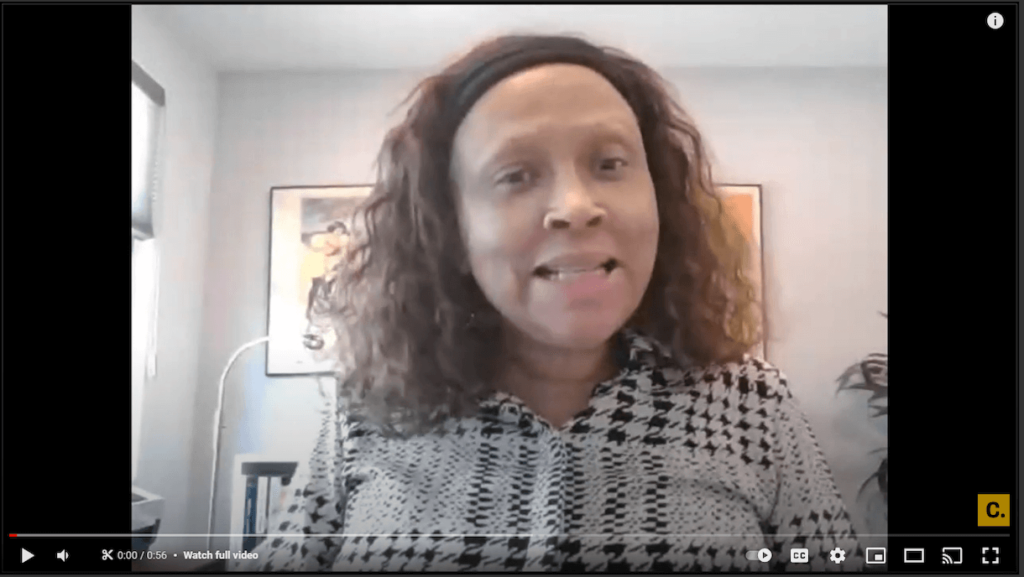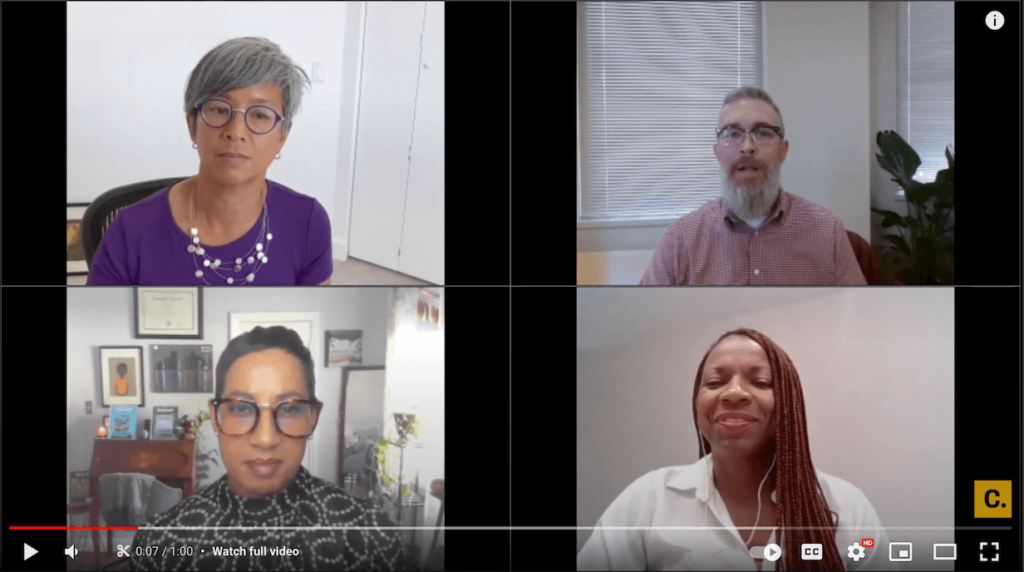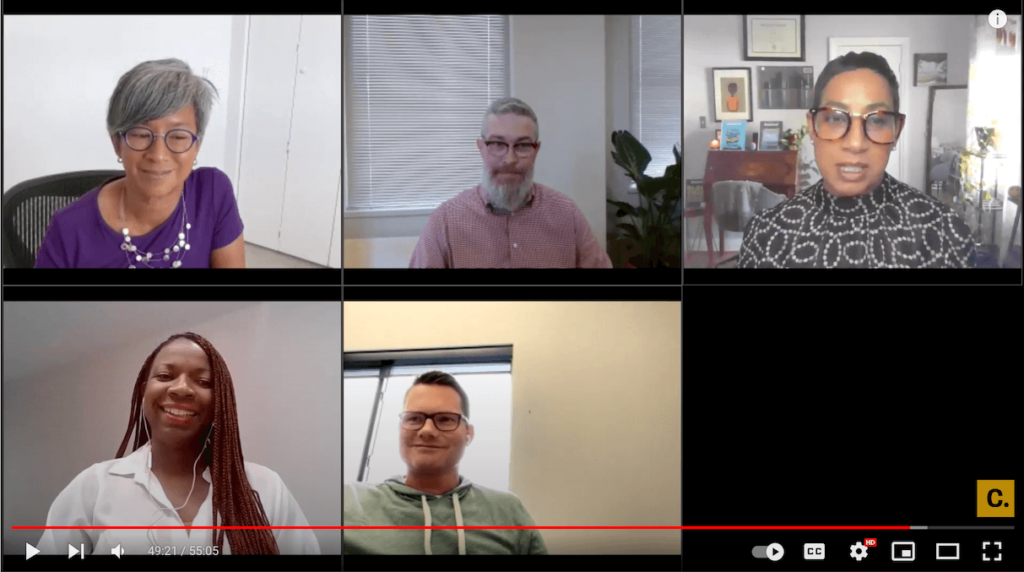Demographics via Candid: Building a movement to promote equity in the social sector

A lack of standardized demographic data not only hinders our collective work to create a more equitable sector; it also requires nonprofits to take time away from their mission-driven work to respond to disparate requests by funders for this information.
To overcome these challenges, Candid, in coalition with a growing number of partners, set out to build a demographic data-led movement to meaningfully and measurably advance equity in the social sector.
Ann Mei Chang, CEO of Candid, introduced the initiative—explaining the importance of having “the data to know where we stand, identify the gaps, and assess our progress.”
At the recent Demographics via Candid launch event, Cheryl Dorsey of Echoing Green opened with a powerhouse keynote, followed by Ann Mei and Anna Koob, senior research lead at Candid, to further set the stage with details on the initiative and the demographic data Candid collects. We then kicked off a conversation with early Demographics via Candid partners Satonya Fair of PEAK Grantmaking, Grant Elliot of Foundant Technologies, Dawn Stone of Center for Nonprofit Management, and Michael Wright of Charles Stewart Mott Foundation to discuss their first-hand experiences collaborating with Candid on this initiative.
The power of data for creating social change
Data and analytics have long been used to improve the quality of products and services, optimize efficiency in production and distribution, and fundamentally shape business models. However, this power extends far beyond the walls of corporations.
Cheryl Dorsey, president of Echoing Green, kicked off the event by sharing the rich history of data-led social activism and how Black innovators are continuing in this tradition.
“The seismic impact of data in moments of global racial reckoning underscores its value and illustrates how it can help all of us create a more equitable environment for all. That is why Demographics via Candid is so exciting to Echoing Green, as an inaugural partner of this initiative.”
– Cheryl Dorsey, president of Echoing Green
Cheryl also explained how a standardized approach to collecting and analyzing the social sector’s demographic data can help identify measurable and meaningful steps toward a more equitable sector. She explained, “The idea that our sector can have a tool that is a simple and transparent way to measure our progress toward more equitable funding practices is really game changing.”
Realizing the potential of this data-led movement
Panelists highlighted real-world examples of how they have put demographic data collection into decision-making practice. Dawn Stone, chief impact and diversity offer of Center for Nonprofit Management, explained how her organization, which connects nonprofits to expertise, partnerships, and tools to fulfill their missions, is using Candid’s data to identify and address gaps in representation on nonprofit boards.
Several panelists also emphasized how they are integrating Candid’s demographic data into their operations and existing technologies. Michael Wright, chief technology officer of Charles Stewart Mott Foundation, explained how his foundation is working to overcome past challenges for optimally collecting, analyzing, and using their grantees’ demographic data to center equity in their grantmaking practices.
Grant Elliott, vice president of product at Foundant Technologies, also described the role that grants management systems can play in reducing the reporting burden on nonprofits by ensuring their demographic data flows efficiently to funders. He emphasized why it is vital that technology providers find ways to support this movement to advance equity in the social sector.
“How do we work better with nonprofits? And a lot comes down to the systems. How do we tie that data together? And then if we can tie it together, we have consistent data and metrics we can be pulling from and leveraging versus data all over the place.”
– Grant Elliot, vice president of product at Foundant Technologies
Lessons learned: Moving from intention to action
To support nonprofits struggling with challenges related to demographic data collection, all panelists advised leaning on organizations in their specialty area for support and guidance, such as Exponent Philanthropy, Race Matters, ProInspire, Coalition for Racial and Ethic Equity in Development (CREED), Government Alliance on Race and Equity (GARE), and Technology Association of Grantmakers (TAG). For example, Dawn shared how her organization offers nonprofits practical resources and tools to help to get started.
Additionally, when asked about how to develop and use a common definition for BIPOC-led and BIPOC-serving organizations, Satonya Fair, president and CEO of Peak Grantmaking, suggests collaboration with other experts is key.
“Lots of folks are trying to help people get started, so there’s a ton of support and thought leaders in this space.”
– Satonya Fair, president and CEO of Peak Grantmaking
Join the movement to advance equity in the social sector
Data can be a powerful tool for change, and Demographics via Candid aims to supply the information needed to measure our progress toward a more equitable sector. As Cheryl emphasized:
It is up to us, as leaders in the social sector, to take action and use this tool to drive meaningful change. Candid is providing us with both the tool and an invitation to a community. The question then becomes, what actions are we prepared to take?
To find out how your organization can join the Demographics via Candid movement, please visit our partners page, or reach out to our team at [email protected].










